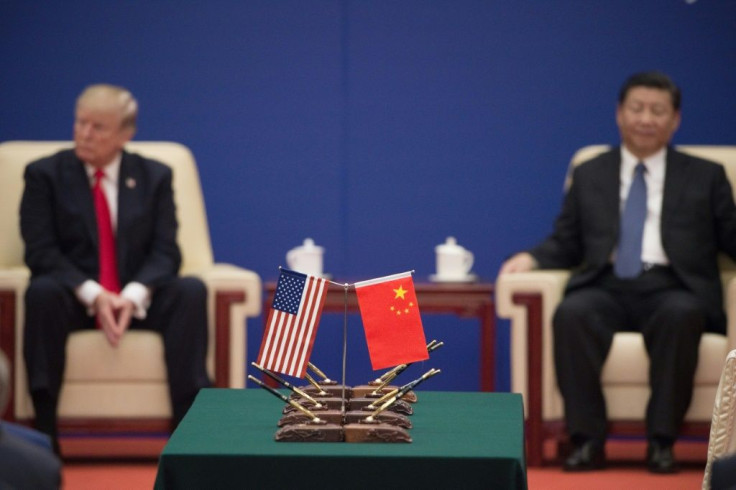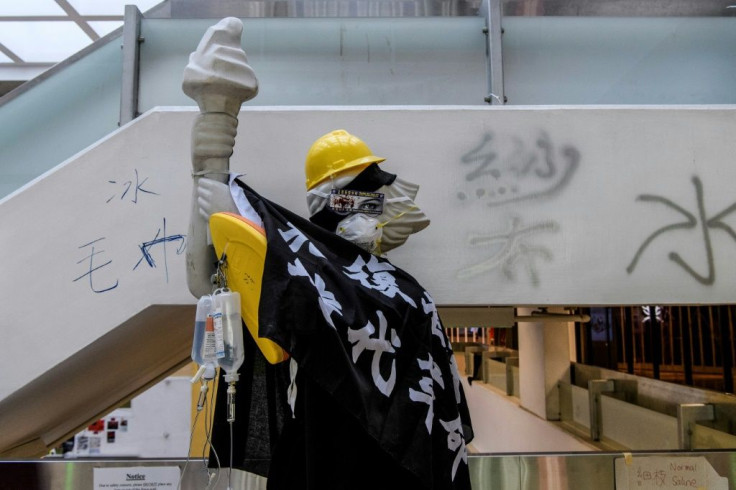China Threatens US Over Pro-Hong Kong Bill: 'US Will Bear Consequences'

President Donald Trump Wednesday signed the Hong Kong Human Rights and Democracy Act 2019 (HKHRDA) into law despite objections by the Chinese communist government in Beijing threatening consequences.
Trump signed two bills cementing U.S. support for the human rights and pro-democracy activists in Hong Kong that have been holding unrelenting street protests against the pro-Beijing Hong Kong government and China since March 15. The other bill is a companion bill restricting U.S. exports of crowd control devices to the Hong Kong police force.
China's Ministry of Foreign Affairs described Trump's signing of the bills as a "hegemonic act." It repeated China's stern condemnations of the law and said China will reply in kind but without mentioning specifics.
“We advise the U.S. not to act arbitrarily, or else China must firmly counteract, and the U.S. must bear all resulting consequences," said the ministry. The ministry also made the claim "all the people of Hong Kong and China" oppose the new U.S. law. It also claims the U.S. has “sinister intentions” and its “plot” is “doomed to fail.”
“This so-called bill will only make the Chinese people, including our compatriots in Hong Kong, further understand the sinister intentions and hegemonic nature of the United States. It will only make the Chinese people more united and make the American plot doomed to fail,” said the foreign ministry in an online statement, according to a CNBC translation.
The ministry also emphasized Hong Kong is part of China through the “one country, two systems” policy, and claimed this policy means Hong Kong residents enjoy unprecedented level of democracy. It saw no reason for the U.S. law.
“The U.S. is creating a false reality, confusing right and wrong, publicly supporting crazy violent criminals in carrying out vandalism, violence against innocent citizens, and disruption to the city’s peace."
Beijing had hoped Trump would veto both bills. Trump expressed concerns signing the bills into law might complicate his effort to reach a phase one trade deal with China.
"Look, we have to stand with Hong Kong," said Trump in an interview on "Fox & Friends" last week. In the same breath, however, Trump said he's "also standing with President Xi. He's a friend of mine. He's an incredible guy."
HKHRDA requires the U.S. government to impose sanctions against Chinese and Hong Kong officials responsible for human rights abuses in Hong Kong. It also allows the U.S. Department of State and other agencies to conduct an annual review to determine if changes in Hong Kong's political status, and its relationship with mainland China, justify changing the unique, favorable trade relations between the U.S. and Hong Kong.
The House version of the bill unanimously passed in the House of Representatives through a voice vote in October. In November, the Senate version of the bill (with amendments) unanimously passed the Senate on a voice vote.
In a statement, Trump said the new law reaffirms and amends the United States-Hong Kong Policy Act of 1992. It specifies United States policy towards Hong Kong, and directs assessment of the political developments in Hong Kong.

© Copyright IBTimes 2024. All rights reserved.





















